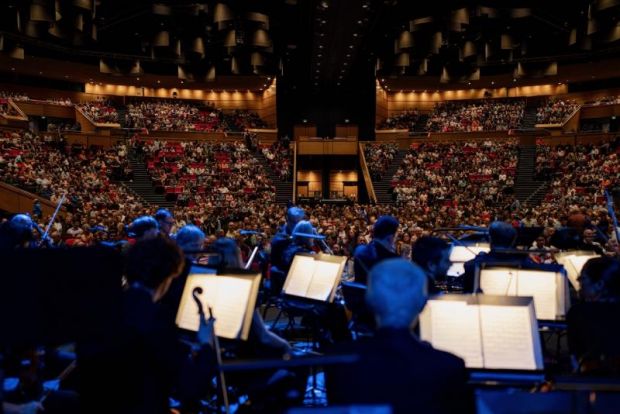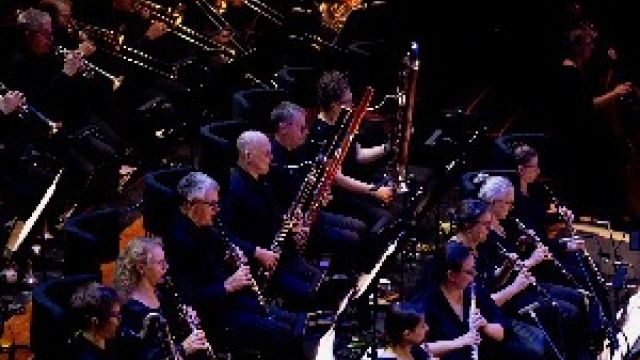Brief Encounter in concert
Excerpts from Rachmaninov’s second piano concerto were on display this last weekend, accompanying live Noel Coward’s famous movie adaptation of his one-act playStill Life and directed by British veteran David Lean. With the distinguished and talented Konstantin Shamray in full flourish at the piano and popular conductor Benjamin Northey at the helm, this was a unique and moving alternative to view the romantic classic, bringing to the forefront the importance of how a musical score can add pace whilst enhancing the emotional makeup of the on-screen characters.
The film has still survived the accolades of time and is an intriguing example of life in pre-WW2 Britain, touching on historic stylistic sentiments we rarely see these days, including the impact of black-and-white. Initially I was starting to doubt fully appreciating an afternoon of this outdated genre but as time went on and the music flowed I began to understand why it became a cut - no pun intended - above the rest. All those involved in the movie project clearly succeeded in reducing their audience into an emotional state, no doubt more than others, whilst touching on and asking a number of questions including the subject of desire and duty, attitudes in middle-class Britain, the creatives even possibly being motivated by the great Romantic and Post-Romantic composers.
Editing popular concert music for film can be irritating for the concert-buffs, but in this instance it really works, Rachmaninov’s music capturing the essence of romanticism and even inspiring, for example, Richard Addinsell with his popular composition Warsaw Concerto, a fine work in its own right, being composed specifically for the movie Dangerous Moonlight. Interestingly, Rachmaninov’s music was the first choice for this movie but the producers couldn’t afford the rights at the time. It was undoubtedly a popular genre for the era.

Surprisingly, I’m not a great fan of the ‘Rach’ piano repertoire - though an admirer and appreciator of demanding works, and being a pianist myself - but there are exceptions, namely his first piano concerto and in particular sections of the second, interestingly for me used in the movie, though I have sometimes been ‘humbled’ to admit I am a theme-or-melody-above-all person; and those who have written the greats do undoubtedly stem from the concert platform repertoire. I mention this because the music chosen for the movie is some of Rachmaninov’s most organic and captivating and a refreshing alternative to a whole concert of rambling arpeggios and heavily-played octave melodies, amongst other technically demanding idioms, unique though it must have been in that era of compositional development including the influences of Russian folk music.
These music-in-the-movies concerts are always a treat to experience, not only because of the artistic endeavours involved with both the aural and visual senses at play, but also the opportunity to watch a part of the workings of the industry in motion; and ‘live’! The concert hall was almost full, many patrons exiting with a tear - or maybe two - in their eye, myself included …..
Brian Adamson
Subscribe to our E-Newsletter, buy our latest print edition or find a Performing Arts book at Book Nook.

